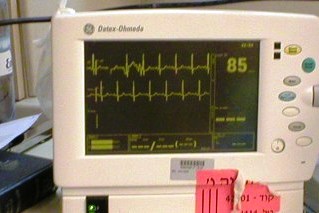
The Public Network for Health Equity in Israel, of which ACRI is a member, calls upon Prime Minister Binyamin Netanyahu to establish an inter-ministerial body under the auspices of the Ministry of Health (to include Ministries of Health, Finance, Welfare, Education, Industry, Trade and Labor, Environment, Transportation, and others). This inter-ministerial body should create a long-term program for narrowing Israel’s gaps in health. The plan must set specific quantitative goals, to achieve results rather than headlines.
In a press conference held yesterday (5 July 2011) by the Public Network for Health Equity in Israel – physicians, health policy experts, and civil society activists called upon Prime Minister Netanyahu to take responsibility for narrowing gaps in health, which constitute a severe infringement of human rights and must be under the responsibility of the government. The speakers gave examples from their daily work, for how social, geographical, and ethnic factors influence an individual’s health and access to healthcare.
The Public Network for Health Equity in Israel also presented two position papers intended to better health care and to close existing gaps in health in Israel.
The first position paper, titled “10 Principles for Health Equality,” lists 10 principles for a multi-year national plan to close the disparities in health in Israel. Among these principles are recognizing gaps in health as a national problem, establishing an inter-ministerial body to address this issue, and preparing a plan that will be transparent to the public, have a sufficient budget, and use systematic collection of data for monitoring purposes.
The second position paper presented in yesterday’s press conference, titled “Impact of Social Factors on Health,” explains how growing economic inequality serves to exacerbate disparities in health. Since Israel joined the OECD (Organization for Economic Cooperation and Development) in May 2010, the comparison to other OECD members provides a new set of criteria and benchmarks for looking at social gaps in Israel. Some examples of social gaps in Israel compared to other OECD countries:
- One of five Israeli citizens is living in poverty (19.9%), and Israel ranked second to last in poverty rates among OECD countries (only ahead of Mexico), much higher than the OECD average (11.1%).
- Israel is ranked fifth from the bottom of the Gini index as compared to other OECD members (with a coefficient of 0.37 versus the 0.31 mean in OECD countries).
- Israel’s level of economic inequality is one of the highest among developed countries. In 2011, Israel was ranked fifth in unequal income distribution among the 34 OECD countries. Israel’s level of economic inequality is a remarkable 22% higher than the average in OECD countries.
- Only 36% of citizens believe that the communities in which they live are tolerant of ethnic minorities, migrant workers, gays and lesbians; this ranks fourth from the bottom of OECD countries and well below the mean average (61%).







